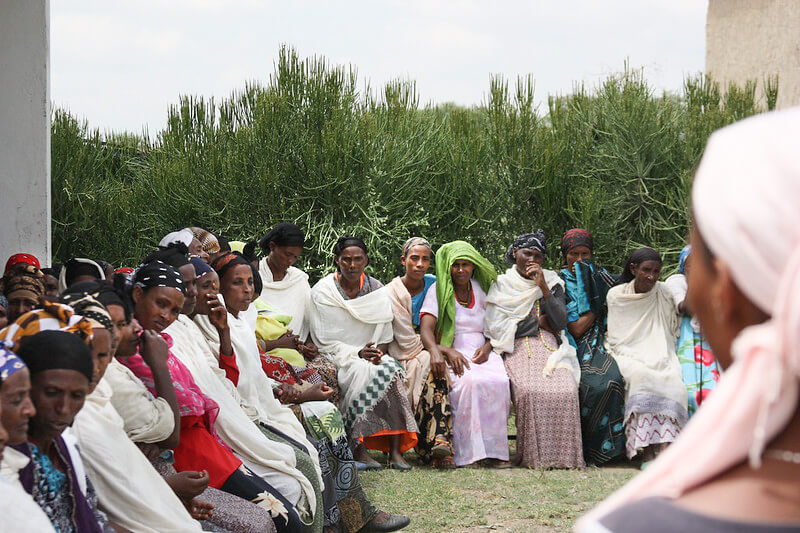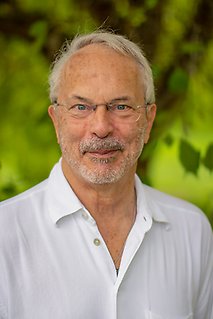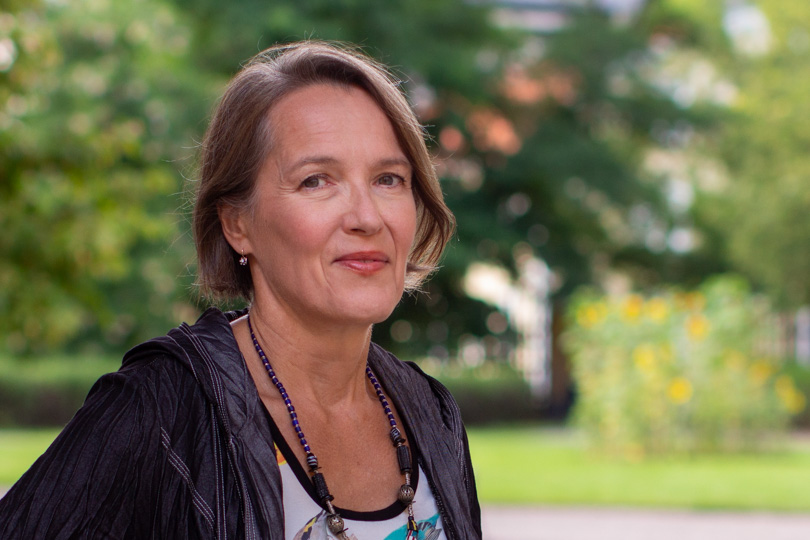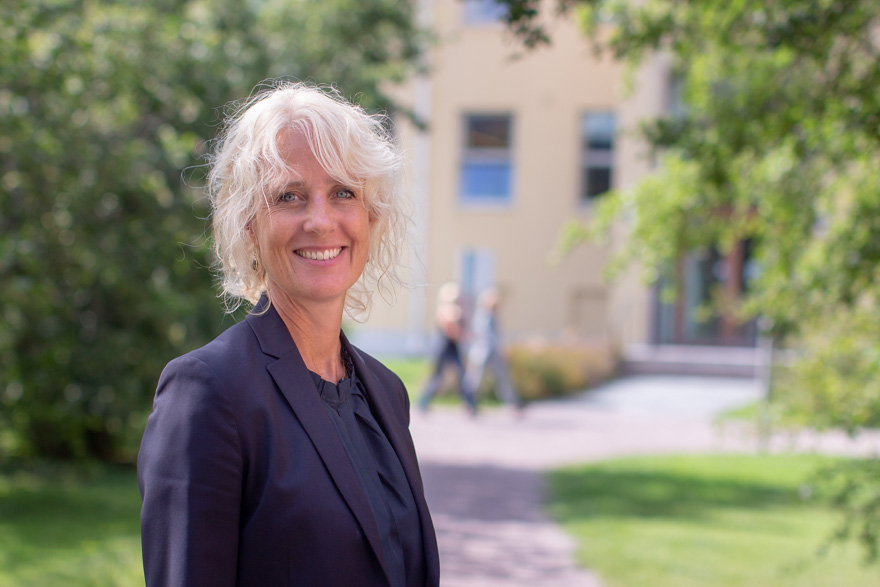The social contract in Africa: social movements must claim bigger role in public arena

A government extension worker in the regional SNNPR state of Ethiopia holds a women group meeting on health education. Photo: Nena Terrell, USAID Ethiopia, creative commons.
Sustainable development entails more than economic growth. It needs societies built on trust and inclusivity, and mutual agreements on rights and obligations. Yet, in many African countries, the social contract between state and citizens is weak.
According to NAI researcher Henning Melber, social contracts in Africa are factionalised because of huge inequalities – they do not embrace all citizens.
“Many people live disconnected from the state. For instance, state structures seldom reach people in more remote rural areas. These are often less visible in civic life. Even in urban centres, many are left without formalised structures of state support — surviving in the informal economy. These marginalised have few expectations from the government”.
However, at the same time, a middle class is gradually on the rise. Its members are well educated, often in formal employment and aware of their rights. They aspire to high standards of living combined with social inclusion and political participation.

Henning Melber.
“These up-and-coming could be the ones pushing the government to increase public services and demand accountability from leaders. However, some surveys have concluded that the African middle class does not identify with the poorer segments of the population, whom they believe lack the ability to make rational and informed decisions”, Melber observes.
So, is a level playing field required first to achieve inclusive social contracts in African countries? Melber thinks it is a chicken-or-egg question.
“Both economic development and social reforms are needed. I think it can happen simultaneously. The Nordic countries are textbook cases of how these two went almost hand in hand – in contrast to, for example, China, which shows great economic performance but with a lot to wish for regarding human rights”.
Another factor in the social contracts equation in Africa is development aid. Critics argue that aid bypasses crucial links between the state and citizens, thus making the state unnecessary and citizens passive recipients.
For instance, governments do not need to increase their efforts to collect taxes, as aid money covers their lack of revenue. And with donors in the driving seat, citizens do not know who to hold accountable for inadequate public services.
It may be a valid criticism, according to NAI researcher Liisa Laakso, but she also says that aid can help build trust in society. One key issue in many African societies is that social belonging is reduced to being about ethnicity alone. Then, people tend to base their opinions and decisions on only that. Therefore, Laakso remarks, donors should continue to promote a pluralistic society by supporting civil organisations, associations and grassroots movements.

Liisa Laakso.
“A plural society entails several possible identities for each individual. Also, small associations are important – they can be built around sports, book circles or anything – because they make people meet others outside their own nearest group”.
Building strong public institutions has been on the international development agenda for decades. According to Melber, the focus on institutions and government has been rather one-sided.
“Strong state institutions are an end result, but we should begin with people. Although we consider African states weak in an international context, they are often too strong in relation to their citizens. Africa needs more civic associations active in public spheres debating and demanding reforms”.
Donors can help but civil society also needs to achieve agency by itself, according to Melber. In the Nordic countries, labour movements were one of the drivers in creating welfare states with a strong social contract. In Africa, many social movements could become more pro-active in society, Melber says – not least churches and religious associations, which are often underestimated with regard to their potential influence on secular matters of participation also.
“Today, many people join Pentecostal churches in frustration over their lives and the political leadership. However, instead of seeing that as a place to unite and articulate ideas, they turn their backs on society. Therefore, churches and other movements, too, need to rethink their mandate and become forces that put pressure on governments to do better”.
A 2018 Afrobarometer report found that African citizens trusted religious and traditional leaders more than public institutions or government bodies. However, as NAI Director Therése Sjömander Magnusson points out, this does not mean that public institutions in Africa are obsolete.
“On the contrary, thought leaders as well as practitioners in the area of governance on the continent show increasing interest in building government institutions that are run by public servants who are focused on service and commitment to the people”.

Therése Sjömander Magnusson.
Empowered public servants would make including social movements more constructive, Sjömander Magnusson adds, and lead to a stronger social contract. However, she partly rejects talking about weak or strong social contracts in Africa because of the context-specific definition from the global North considering state-citizen relationships alone.
“I think we need to go beyond talking about formal obligations of the state and duties of the citizen. A social contract is not only about the relationship between the state and its citizens, but also about trust and solidarity between individuals. We need to understand how people view themselves in relation to other parts of their society”.
NAI has a role to play in providing a deeper understanding of what motivates a person or group of people to react and act at a certain time, Sjömander Magnusson adds.
“Policymakers and development agencies need to know more about this in order to support people-centred social reforms on the African continent”.
TEXT: Johan Sävström
Redefining the social contract in Africa, a policy note from a panel discussion.
